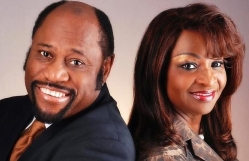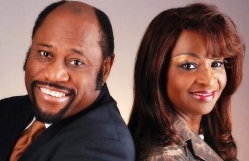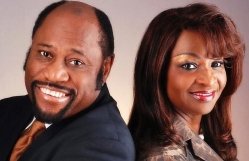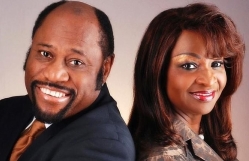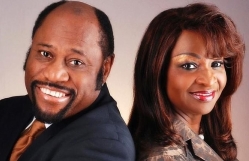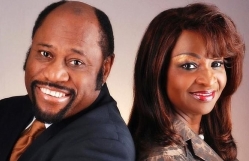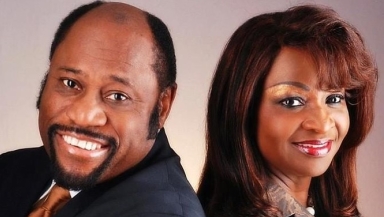
Myles Munroe had a "sense of urgency" about him before his death and may have felt that his days were numbered, according to the Prime Minister of the Bahamas, Perry Christie.
Christie spoke at the state funeral service for Myles and Ruth Munroe, killed with Pastor Richard Pinder, Pastors Lavard and Rudel Parks and their two children, one of them unborn, Captain Stanley Thurston, Frankhan Cooper and Diego De Santiago in an air crash on November 9.
The funeral followed a memorial service at the Thomas A Robinson Stadium, at which Christie also spoke. In his address he referred to the last meeting he had had with Munroe, at a gathering of religious leaders he had convened to discuss constitutional reform.
Christie said: "Dr Munroe took a lively part in the discussions at the meeting but what I most vividly remember about him that Saturday evening was how he was one of the very last to leave the meeting and to leave my office after the meeting.
"Looking at it in retrospect, it seems that there was a lot on his mind, much more than normal; and that a sense of urgency now attended him; a sense that there was no time to waste; a sense that the challenges of our times summoned us all to leadership in one form or another so that the problems of contemporary Bahamian society that so troubled him could be more aggressively addressed and remediated."
He said: "I think about that now; I wonder about it now because it does suggests to me in retrospect that Dr Munroe was perhaps sensing at some instinctive level, perhaps even at some prophetic level, that his days were numbered, and that the end of his numbered days was drawing nigh."
Christie said that Munroe "really loved his country, this beloved Commonwealth of the Bahamas" and would always come home to play his part in building up the country. "This kind of outreach was central to his sense of purpose and central to his work as an evangelist for Christ because it was clear to me that religion for Myles Munroe was not about locking oneself up in some remote ivory tower of private contemplation. Rather, it was about rolling up your sleeves and getting down into the trenches to deal with the real problems of real people living in the real world."
He urged his hearers to look for the Munroes' legacy in the lives they had changed and in the good that they had done: "We read too much about those who are doing bad things in the Bahamas and too little about those who are doing good things, even great things, day in day out, working by the sweat of their brow; raising good families; helping out and doing good works in the community; leading lives of high purpose that ennoble themselves and ennoble us as all as a society, as a people, and as a nation under God. That's the kind of people Dr Myles leaves behind as his monument."










